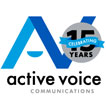Today, I’d love to have a conversation with you about the way you view copy. Even without such a conversation, I ask you to consider a question you may or may not have considered before.
As copywriters, we’re taught that words matter. Then, we tell our clients, our bosses and our friends that words matter. Sure, we each have a style, and some of us break more rules than others. But on the aggregate, we’re sticklers for the ways words are used.
However, with more mediums to transmit your content and inherently more content to create, we’ve started to relax our rules a bit. We’re generally OK that you misspell or abbreviate for the sake of Twitter’s 140 characters. And we even — GASP! — do it ourselves from time to time. (Though we claim to have winced when we did it.) And Facebook is an informal medium, so who’s gonna get too judgmental there? Heck, blogs are intended to be casual conversations — who has time to craft and re-craft a blog, right? So, I’ll say for the record that yes, you might catch an error here.
But at what point do we really care? A daily one-page calendar from a resort on its events and activities? A company’s Web site? A short press announcement? What about a brochure? As a reader and writer, I don’t classify myself as a technical stickler, but I do pay attention. And I do notice when an organization’s content is full of typographical or grammatical errors.
Here’s the question I cited earlier: Do you? And at what point does sloppy copy affect your trust in or opinion of that organization?

I tend to look at it like a math formula: The the wider the distribution, the more expensive the media cost, the more critical the topic, or the longer the lifespan, the more it matters.
But interestingly enough, that’s where electronic media can monkeywrench the works, since online content essentially lasts forever and can achieve far wider distribution.
Using your resort calendar example: A printed photocopy at the front desk has a life expectancy of the duration of your guest’s stay. Mistake, no biggie–heck, print a whole new stack! A misleading grammatical mistake on their web site or in a printed catalog has the potential to affect the opinions and decisions of thousands of people.
I’m all for good grammar and clean copy–no matter who’s writing it. But I like to think of written rules like social etiquette. Good manners are meant to make others feel comfortable, but often they just end up alienating people. Companies and individuals should strive to use proper English whenever possible, but they should also communicate with their customers in a way that the customer feels most comfortable. And if that means starting a sentence with “and” or using text language, then so be it.
I am a “casual” blogger. And so I ain’t too worried about grammar. LOL. 😉
Seriously, Shelley’s points nail it.
I would love to write and say what a great job you did on this, as you have put a lot of work into it.